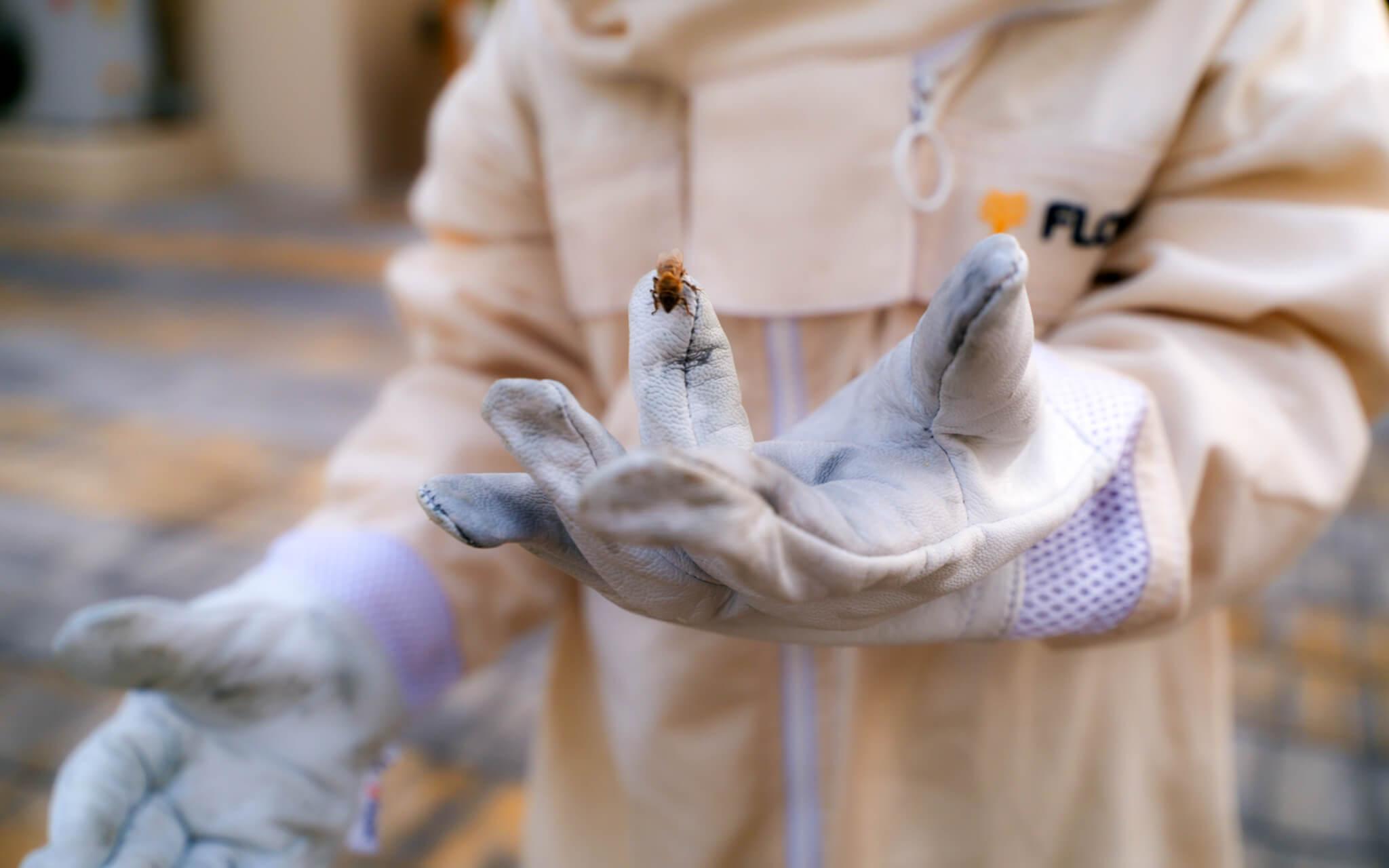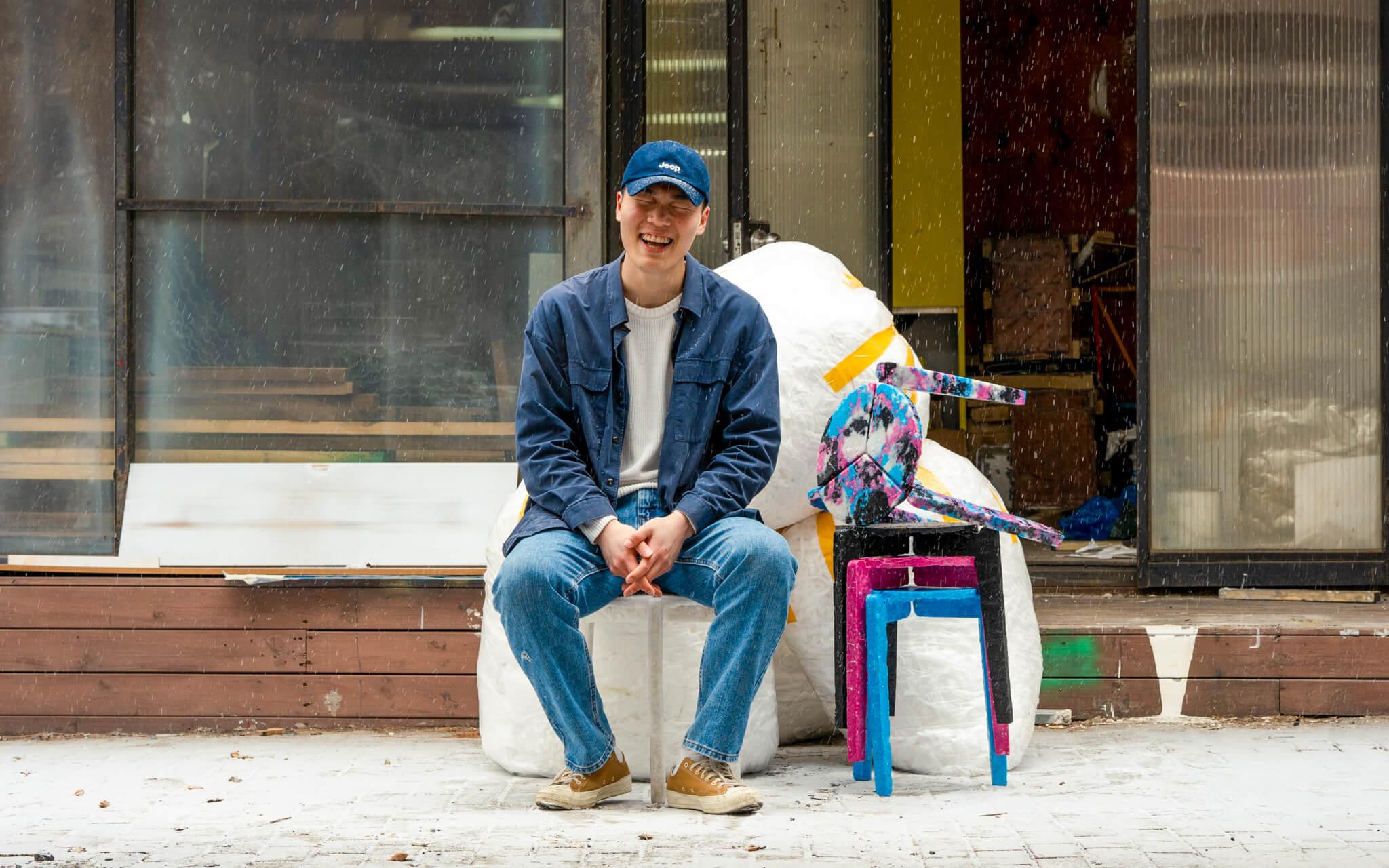Growing Food in the Air
Amidst arid desert conditions, the Food Engine grows sustainable strawberries and other produce year-round in nutrient-enhanced mists, leading a revolution to ensure food security for future generations.
Even as a young girl, Ghita Bahmad was worried about the origins of the produce on her plate. The fact that the world’s food systems involved crops taking flights from remote corners of the globe astounded her even then.
“I would always ask my mom, ‘When she gave me something to eat, I'm like, ‘How did they produce it? Where is it produced?’ And she was like, ‘Can you just eat it?’” reminisces Bahmad about her childhood in Canada, laughing.
Food was an endlessly fascinating subject, one she loved to delve into, inspired by her rich Moroccan culinary heritage. That curiosity and love of understanding processes, combined with a teenage realisation that the food sector is one of the biggest contributors to global environmental crises, inspired her to become a food engineer.
Today, Ghita is the founder and CEO of The Food Engine (now held under Al Suwaidi Farm) - a remarkable UAE start-up using aeroponic and sustainable techniques to grow local produce.
“I was sure that food engineering is the sector I wanted to study because seeing how food is manufactured means that this is where you can have the biggest impact.”
Ghita’s drive to make a difference pushed her to create new processes for water and plastic usage reduction at one of North America’s biggest food and beverage manufacturers.
But for Ghita, that wasn’t enough.


An innovator at heart, Ghita decided that the world’s agriculture systems needed reform, and she began to experiment with farming after work.
“I saw that aeroponic was the most efficient way to grow vegetables. Agriculture is the oldest profession in the world and doing it the traditional way - there is no innovation there. There is a lot of optimisation that you can that you can do,” she says.
The nascent technology of aeroponics involves plants grown in towers with their roots suspended in the air and enriched by a nutrient mist. Not only does it use no soil, fertiliser and up to 90% less water, but it also dispels the need for herbicides and pesticides.
Ghita knew it was time to take it worldwide - she set her sights on the UAE and its burgeoning innovative agricultural sector.
“I did a lot of trial and error. I killed a lot of plants, really,” she confesses. “But it worked. I saw that this is something that can really address climate change and reduce food miles. So I decided to really dedicate myself 100% to that.”
However, it's been a thorny journey. In September 2021, inspired by the post-Covid investment in local food production in the UAE, Ghita crossed the Atlantic to fulfil her dreams in Dubai. The only problem was that her business proposal had been rejected by a potential investor three times already.
We grow our own vegetables, we help others to do it, and we teach it.
She was undeterred. “I really prepared myself again and again and again. And then I went for the fourth time. I told him, ‘Just give me a chance for two months. I will show you.”
And fourth time was the charm. Not only was the Emirati business partner convinced, but a month later, in April 2022, her startup, The Food Engine, was also selected by the UAE’s Ma’an incubator and supported with grants and other initiatives for seven months.
Her parents moved to the UAE to support her, and today, The Food Engine grows over 10 tons of produce annually in its aeroponic towers, including crops like strawberries, cherry tomatoes, and peppers. They also bring their technology into schools and have educated over 1000 students while also conducting workshops on aeroponic technology and sustainable living on their farm.
“We grow our own vegetables, we help others to do it, and we teach it.”
Instead of keeping the technology to themselves and selling only the produce, she realised that the most benefits would come from sharing it, selling the towers and creating a new generation of sustainable food engineers. “It's like training farmers or training little food engineers, as we like to call it. And this is what our team really wanted to do and what resonated with my values.”
She says: “Seeing students harvesting strawberries in Dubai in June was something that I was really proud of. They love to do it. A nine-year-old girl told me, ‘Now I know how to do lettuce. Can you show me please how to do cherry tomatoes?’”
Ghita is continuously frustrated by the idea of imported produce. “When you import lettuce, the nutrient level is low, the freshness is low, and you have to pay for transportation,” she explains.
Although Ghita says that they were approached by investors in Switzerland, Morocco, Canada and other countries, her immediate goal is clear. “Our strategy is really to expand in the UAE first. I see our towers everywhere, in supermarkets and classrooms.”
“I see a tower behind you,” she adds, smiling, gesturing to my home in the UK, some 5500 kilometres away.
I see it behind me, too, waiting in the future.
Most Popular
The Climate Tribe delivers stories about Biodiversity and Conservation, Circular Economy, Food and Water , and how they intersect with climate.
Subscribe
Get the latest stories inspiring climate action around the globe straight to your inbox.






